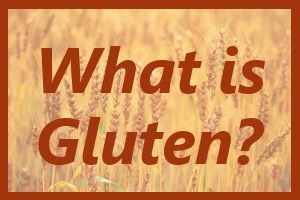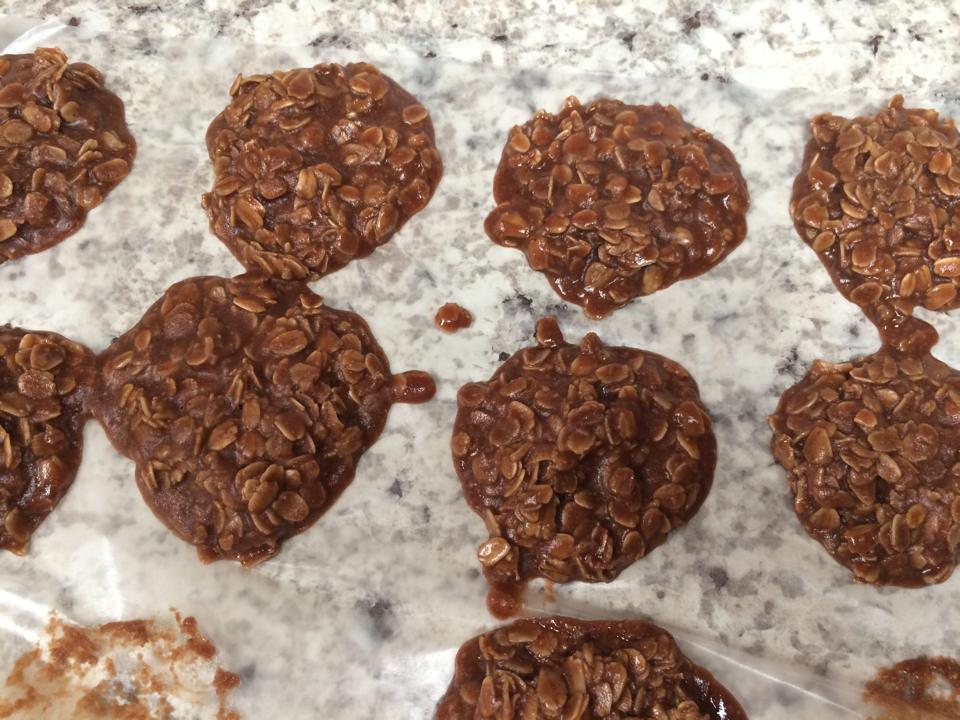What is Gluten and How it Affects our Body
What is Gluten and How it Affects our Body
I have asked what YOU wanted to see on My Dairy Free Gluten Free Life this year and I hear you loud and clear! Your comments were more and more recipes and more information all about living a Gluten Free Lifestyle! So I am beginning a series about Gluten Free for Life which will take us from what gluten is and how it affects our body to tips for home cooking, shopping, eating out and more! So look for Gluten Free for Life weekly and if you have something you’d like discussed right away, leave a post comment and I will try to address your concerns sooner than later.
My health problems and why I began eating Dairy Free and Gluten Free is described in my Welcome. But for a short snippet: In January of 2012, I continued having abdominal pains and overall fatigue that no one could seem to get a handle on so I thought I’d see a Naturopathic Doctor. She did many tests and one confirmed Gluten Sensitivity! Gluten Sensitivity…almost to the point of adrenal fatigue! I was told I must eliminate gluten/wheat from my diet now! That was a shock! All the physicians I had seen never even mentioned the possibility of a gluten problem.
What is Gluten and How it Affects our Body

If you discuss eating, cooking or diets at all, you have probably heard the word gluten. You may have heard about people who have to avoid gluten. Perhaps you or someone you know has to follow a ‘gluten-free’ diet.
But what exactly is gluten? Let’s look at the dictionary definition first:
glu·ten; (noun)
A protein substance present in grains, such as wheat, that is responsible for the elastic texture of dough. From the Latin ‘gluten’ meaning ‘glue.’
To explore that definition further, let’s look at the scientific definition:
According to the U.S. National Library of Medicine and National Institutes of Health, “Gluten proteins play a key role in determining the unique baking quality of wheat by conferring water absorption capacity, cohesivity, viscosity and elasticity on dough.”
That’s the definition and the science, but that just seems to bring up more questions. Does this mean that gluten is just found in wheat bread? No. It’s more complicated than that. For now lets just look at Gluten and how Gluten affects our body.
When gluten is not absorbed by our body we could have Celiac Disease or Gluten Intolerance. Celiac Disease is characterized by small intestine damage. The lining of our intestines contains areas called villi, which help absorb nutrients. When people with celiac disease eat foods or use products that contain gluten, their immune system reacts by damaging these villi. This damage affects the ability to absorb nutrients properly. A person becomes malnourished, no matter how much food he or she eats. This damage and malnutrition can lead to vitamin deficiencies that can present as altered growth, anemia, osteoporosis and even poor concentration and behavioral problems. For some people gluten doesn’t affect them at all, but for others it can make them very sick and could be a matter of life or death.
The disease can develop at any point in life, from infancy to late adulthood.
People who have a family member with celiac disease are at greater risk for developing the disease. The disorder is most common in Caucasians and persons of European ancestry. Women are affected more often than men.
People with celiac disease are more likely to diseases such as autoimmune disorders, cancers and thyroid disease, just to name a few.
Each persons body reacts differently to gluten, but for those that have Celiac Disease, even the smallest amount of gluten can make them very sick. The smallest traces of gluten can come from someone having it on their hands and then touching a door knob without washing their hands first. It could also come from one small bite of food with gluten in it.
It’s true that ‘celiac disease’ and ‘gluten intolerance’ both present similar symptoms, making the diagnosis process lengthy sometimes. However, the only way to diagnose celiac disease is with a blood test and, if warranted, a biopsy. Diagnosis based on symptoms alone will not be enough when celiac disease is suspected.
Celiac disease and gluten intolerance are treated the same; a gluten-free diet. There are no medications to treat either condition. However, complications from untreated celiac disease (as mentioned above) may result in further treatment.
Gluten Intolerance is on the rise, it is not just something imagined. Dr. P. Green, MD who has served as Director of the Celiac Disease Center at Columbia University Medical Center since 2001 states that the rise is real but at this point in time, the reason is unknown.
The symptoms of celiac disease can be different from person to person. This is part of the reason why the diagnosis is not always made right away. For example, one person may have constipation, a second may have diarrhea, and a third may have no problem with stools.
The following are symptoms that present in persons with both Celiac Disease and Gluten Intolerance. They may have many or just a few of these symptoms.
Gastrointestinal symptoms include:
- Abdominal pain, bloating, gas, or indigestion
- Constipation
- Decreased appetite (may also be increased or unchanged)
- Diarrhea, either constant or off and on
- Lactose intolerance (common when the person is diagnosed, usually goes away after treatment)
- Nausea and vomiting
- Stools that are foul-smelling, oily, or and stick to the toilet when flushed
- Unexplained weight loss (although people can be overweight or of normal weight)
Because the intestines do not absorb many important vitamins, minerals, and other parts of food, the following symptoms may start over time:
- Bruising easily
- Depression or anxiety
- Fatigue
- Growth delay in children
- Hair loss
- Itchy skin with a rash (dermatitis herpetiformis)
- Missed menstrual periods
- Mouth ulcers
- Muscle cramps and joint pain
- Nosebleeds
- Seizures
- Tingling or numbness in the hands or feet
- Unexplained short height
Children may have:
- Defects in the tooth enamel and changes in tooth color
- Delayed puberty
- Diarrhea, constipation, fatty or foul-smelling stools, nausea, or vomiting
- Irritable and fussy behavior
- Poor weight gain
- Slowed growth and shorter than normal height for their age
The damage done to our body is due to a reaction to eating gluten, which is found in wheat, barley, rye, and possibly oats. If you think you may have Celiac Disease or Gluten Intolerance please talk with your medical provider because there are tests that can be done.
We will look at You’re Diagnosed with Celiac Disease or Gluten Intolerance, Now What? in our next post, stay tuned.








Very thorough article. Glad that you sought out a natural source that helped you through this other than being pushed pills.
thanks – LOVE the info!!